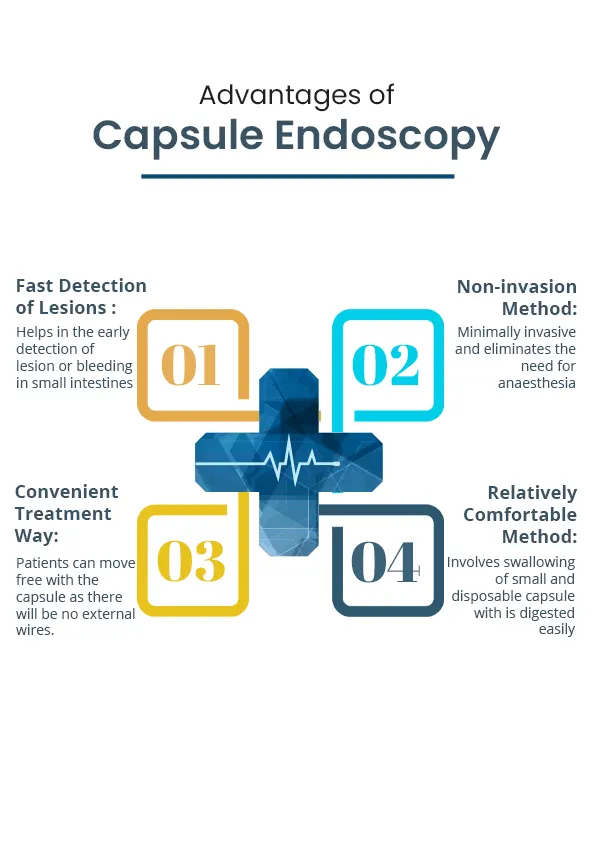Endoscopic Intervention
What Is Capsule Endoscopy?
Capsule endoscopy is a minimally invasive endoscopic diagnosis procedure which led to the examination of entire gastrointestinal tract, including small & large intestine, esophagus and other organs. During this procedure, patients are given capsule like pills for swallowing which are easily digestible with the stomach enzymes. The capsule attached with a miniature camera passes down the throat to the stomach, offering clear imaging of existing gastrointestinal disorders like Crohn’s disease, small bowel tumors, and bleeding lesions.
Why is Capsule Endoscopy Performed?
- Screening for Colon Cancer: Capsule endoscopy helps in the early detection of colon cancer or colorectal cancer and helps in the timely prevention.
- Screening & Removal of Polyps: It allows for the detection and removal of precancerous polyps, reducing the risk of developing colorectal cancer.
- Identifying Gastrointestinal Problems: Capsule endoscopy helps in the timely detection of other gastrointestinal problems like rectal bleeding, abdominal pain, stomach infection, and changes in the bowel habits.
- Diagnosis of IBD: It is used to diagnose conditions like ulcerative colitis and Crohn’s disease by assessing inflammation and tissue damage in the colon.
- Evaluation of Anemia: Capsule endoscopy helps doctor to find out sources of anemia by identifying bleeding lesions or any other abnormalities present in the colon.
Advantages of Capsule Endoscopy
- Non-Invasive Procedure: It is a non-invasive alternative to traditional endoscopic procedures, eliminating the need for sedation and insertion of a scope into the body.
- Improved Patient Comfort: It is generally well-tolerated by patients, as it involves swallowing a small, disposable capsule containing a camera rather than undergoing an invasive procedure.
- Convenient and Portable: Patients can carry out their daily activities while the capsule passes through the digestive tract, as it requires no external wires or attachments.
- Appropriate in Patients with Incomplete Colonoscopies: It can be beneficial for patients with incomplete colonoscopies or suspected small bowel pathology that cannot be reached with traditional endoscopy techniques.


